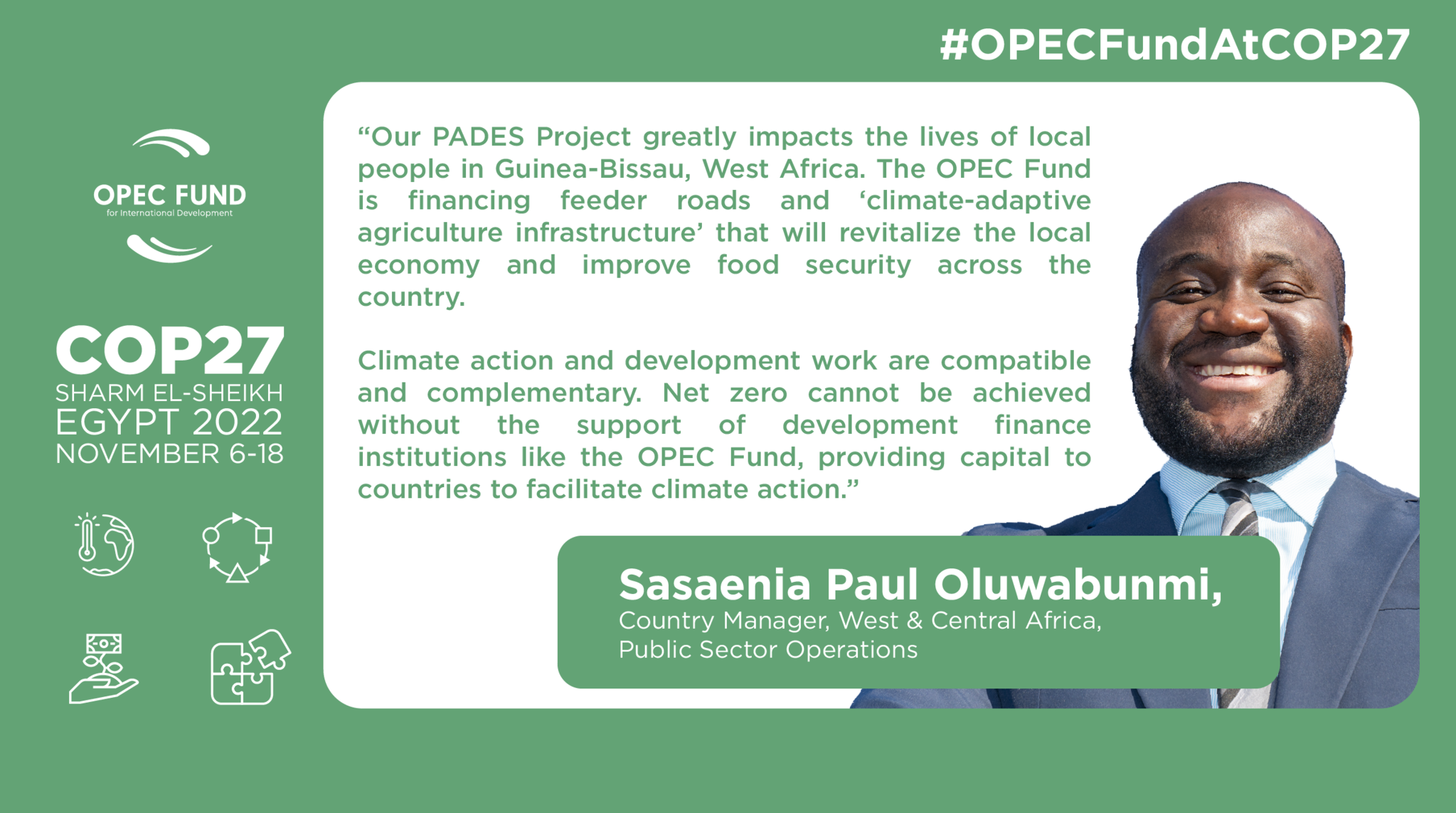We use Cookies. Read our Terms
- News
- Staff on COP27: Improving food security in West Africa
Staff on COP27: Improving food security in West Africa

This series highlights our climate and development work worldwide, with an equal focus on planet and people. From agriculture in Africa to energy in Asia, our projects contribute to climate action through numerous public and private sector initiatives and partnerships. In September 2022, the OPEC Fund adopted its first Climate Action Plan, with a commitment to doubling our share of climate financing to 40 percent by 2030, while mainstreaming climate action across our operations. #OPECFundAtCOP27
Sasaenia Paul Oluwabunmi, Country Manager, West & Central Africa — Public Sector Operations
In Guinea-Bissau, West Africa, how is our Economic Development Project for the Southern Regions (PADES) contributing to climate action? How is it actually improving the lives of local people?
Our PADES Project greatly impacts the lives of local people. The OPEC Fund is financing feeder roads and “climate-adaptive agriculture infrastructure” that will revitalize the local economy and improve food security across the country.
What do we mean by “climate-adaptive agriculture infrastructure”? We mean providing support for rice production through the rehabilitation of mangrove swamps and lowlands, development of watersheds across the country, as well as providing irrigation kits to farmers. Environmental safeguards incorporated in all these activities will reduce erosion and improve the sustainability of agriculture products, thereby directly contributing to climate adaptation.
Some 40 percent of the beneficiaries will be women and 42 percent youth. The project will enhance market access and reduce wastage across the agriculture value chain.
What are the overlaps between development work and climate action? How are they compatible and even complementary?
Climate action and development work are compatible and complementary. Net zero cannot be achieved without the support of development finance institutions like the OPEC Fund, providing capital to countries to facilitate climate action.
Recently, development work has also embedded “climate-adaptive activities” as a prerequisite for most projects. This is important for achieving the world's climate goals.
“Climate-adaptive activities” are features of new projects that reduce the negative impact of climate change, while taking advantage of potential new opportunities. These activities involve adjusting policies and actions linked to observed or expected changes in climate, including via proactive measures such as crop and livelihood diversification, seasonal climate forecasting, community-based disaster risk reduction, famine early warning systems, agriculture insurance, water storage and supplementary irrigation.